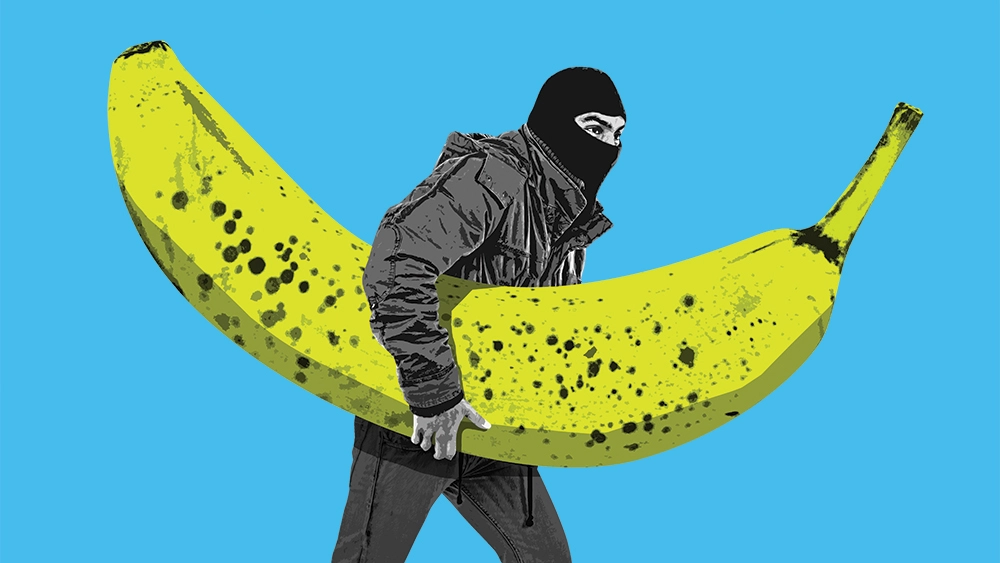“I know a good joke when I steal one”: An exploration of plagiarism in comedy

The issue of ‘joke thieves’ and plagiarism in comedy has become somewhat of a regular discussion in the past few years, with perhaps the most prominent example being American comic Amy Schumer who was exposed as having plagiarised a vast array of jokes from other comics such as John Mulaney, Kathleen Madigan and Wendy Liebman (among many others). It is important to note that joke theft is not a new issue, by any means. The 1993 Denis Leary special ‘No Cure for Cancer’ is widely regarded to have completely ripped off the act of legendary comedian Bill Hicks – both the Denis Leary and Bill Hicks performances are currently available on Netflix so you can see for yourselves how similar the two are. Further back than that, the 1973 National Lampoon stage show ‘Lemmings’ was accused of stealing a joke from Monty Python. So why is plagiarism in comedy much more prominent nowadays? It is difficult to say for sure, but the ease at which content is viewable on the internet means that if Amy Schumer tells a joke very similar to a joke Wendy Liebman told in the early 90’s, the likelihood is that there’s a video of that performance online. Thus, perhaps joke theft is not a much more important issue these days, it is simply easier to identify.
Schumer has faced very little in the way of consequences in spite of the overwhelming amount of evidence of thievery. Her new show ‘Expecting Amy’ is a hit on HBO Max, two of her stand-up specials along with her film ‘Trainwreck’ are still available on Netflix and she has won multiple awards from Critics’ Choice to an Emmy. It does not seem morally sound that Amy Schumer, and many other plagiarists, are allowed to create a successful and illustrious career based upon the jokes of other comics who are left to fall into obscurity. Denis Leary still enjoys an incredibly successful career as a writer and actor thanks largely due to the success of his ‘Cure for Cancer’ special, whereas Bill Hicks died in 1994 with only a handful of stand-up specials and an unaired Letterman performance to his name. Seemingly joke theft is not regarded as a big deal, when questioned on Leary’s plagiarism, Hicks quipped “I stole his act. I camouflaged it with punchlines, and to really throw people off, I did it before he did.”.
Many have argued that nobody can really own a joke, they are in the public domain and hold no real value. Stand-up legend Stewart Lee tackled this idea brilliantly in his routine about Joe Pasquale stealing a joke from Irish comedian Michael Redmond, and I believe the sentiment of that routine still rings true. Furthermore, in an industry as hard to break into as stand-up comedy, it is ludicrous to have to accept mainstream comics ripping-off jokes from more obscure acts – that probably will not find themselves on Live at the Apollo or Mock the Week or any other of the one-size-fits-all comedy programmes being thrust unto the viewing public by the BBC – as an inevitability. Aside from anything else, it is lazy. Plagiarism just goes to portray a lack of creativity or originality which, ultimately, will have a detrimental effect on comedy as a whole by limiting the success of new and original comics.
As a journalism student, I know how seriously plagiarism is taken in my field as well as many others such as science or music. Does it not, then, make sense for plagiarism in comedy to be taken just as seriously? It is an incredible injustice, yet it seems to be constantly shrugged off as a mere annoyance. A written joke should be held in the same regard as any other artform. The Verve made no money from ‘Bittersweet Symphony’ because it sampled an orchestral version of a Rolling Stones song, yet Amy Schumer is allowed to continue her ridiculously successful career built off the back of telling other people’s jokes, does that seem fair to you? Stop supporting the hacks.
